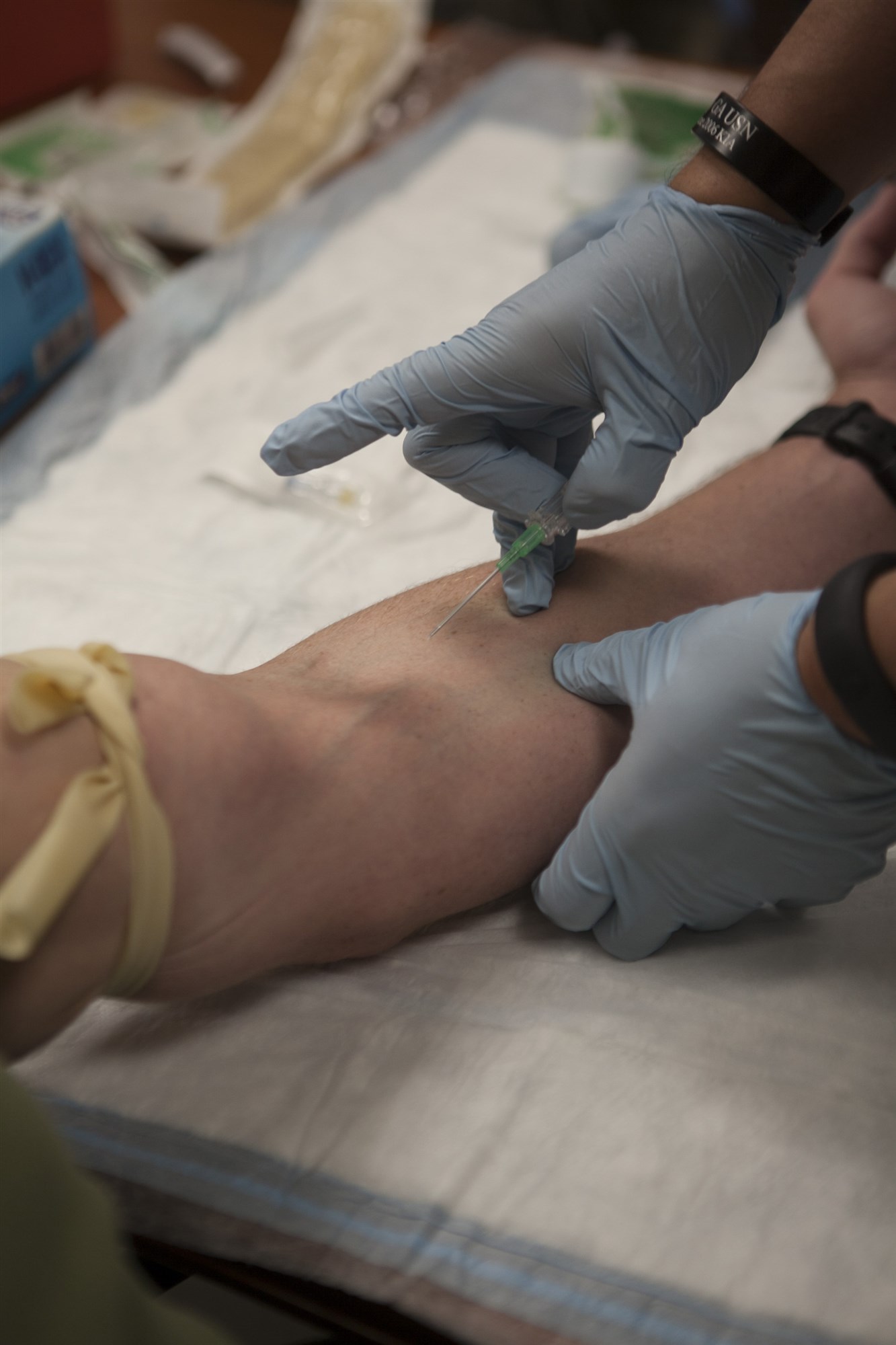Marines with Special-Purpose Marine Air-Ground Task Force Africa 13 completed the Tactical Combat Casualty Care course here, March 14, 2013.
The Marines completed the week-long course in preparation for military-to-military engagements with African partners.
“It’s used primarily as a training tool and guideline when we do first-responder care in a combat environment,” said Petty Officer 1st Class Eric Ancheta, a SP-MAGTF Africa 13 corpsman and instructor for the course.
The TCCC program became part of the Defense Health Board in 2001 to improve the principles of good trauma care in combat situations. The guidelines are updated every four years.
“The last time I attended a TCCC course was two years ago, so a refresher was due,” said Sgt. Brian Hutchinson, SP-MAGTF Africa 13 motor transportation chief from Eureka, Calif. “It’s good to learn what is current and recommended now, as opposed to two years ago.”
The three main goals of TCCC are treating the casualty, preventing further injuries and accomplishing the mission. The course teaches how to perform basic lifesaving skills, but also when to use those skills. Three phases of care are identified to help prioritize what care to give and how to maximize safety.
Phase one, care under fire, is when service members are under fire in an open area without cover.
“The first intervention that we teach in care under fire is not medical at all: shoot back or suppress the enemy,” said Ancheta, a Whittier, Calif., native. “By doing that you are preventing further harm to the casualty.”
Tactical field care, phase two, is when airway management, minor bleeding, intravenous access, treatment for shock and other care are possible and safe.
Phase three, tactical evacuation care, is where the same injuries are treated as tactical field care but in preparation to be evacuated to a medical center.
“Everything we do is about muscle memory,” Ancheta said. “Training to perform casualty care this way helps you to focus on the mission at hand, so you’re still in a tactical mindset.”
At the end of the training is a final exam where the process and techniques are tested in a simulated combat environment.
After Hutchinson’s simulated casualties were properly treated and evacuated, he became TCCC certified.
“I feel more comfortable with myself having been through the course as a refresher,” said Hutchinson. “I want to be able to help in a combat situation, so I can be sure that my brother or sister makes it back home.”







